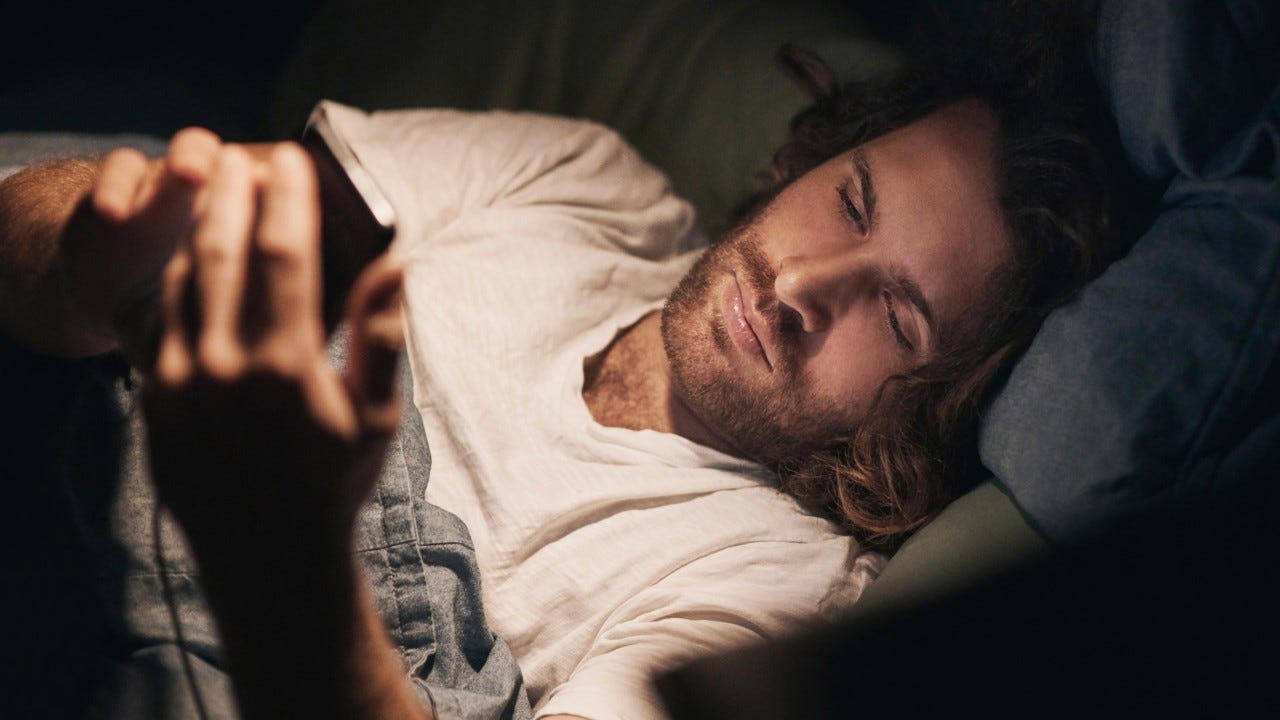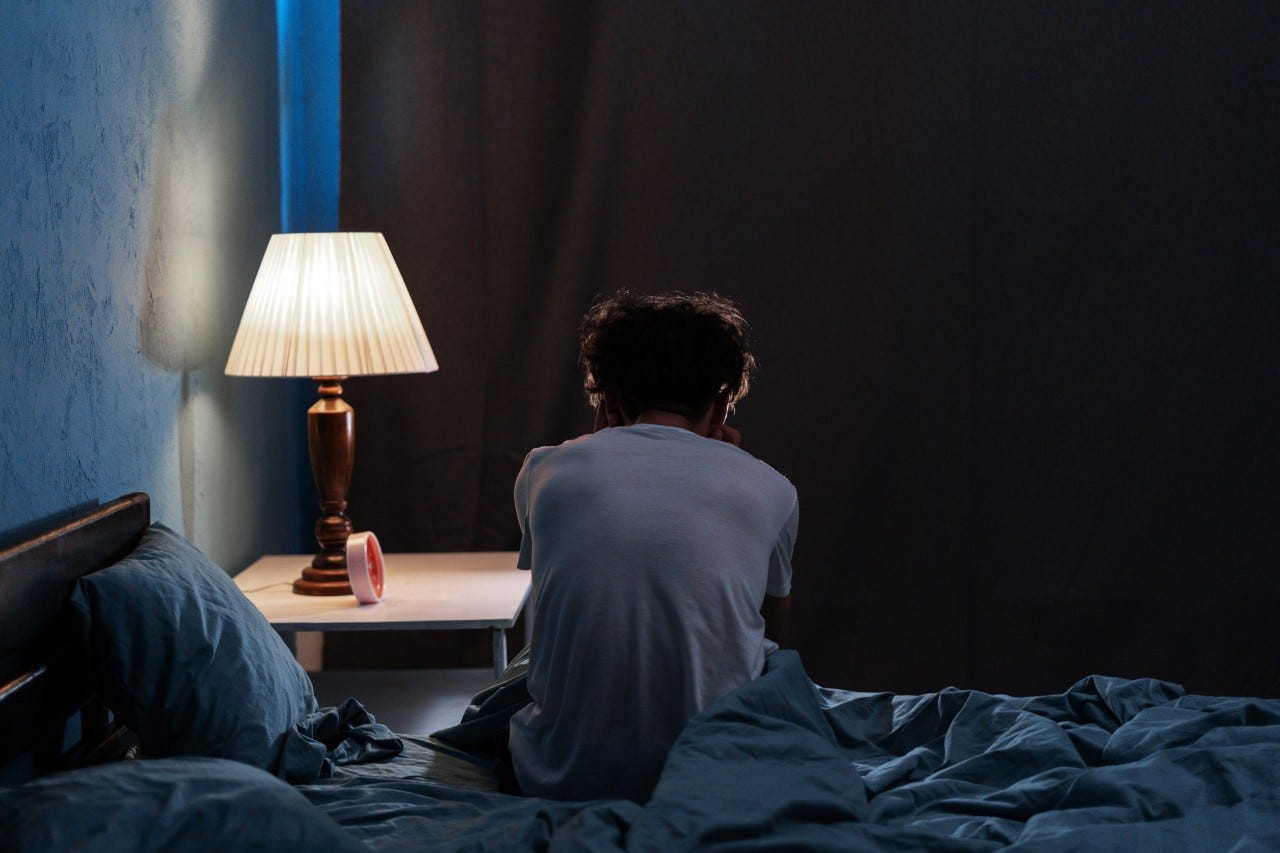Insomnia: causes and treatment of sleep disorders
We tend to take sleep for granted – as long as it all goes to plan. If sleep disorders occur, sleeping peacefully is a thing of the past.

Have we forgotten how to sleep well? Yes and no, says Björn Rasch, sleep researcher at the University of Fribourg.
On the one hand, says Rasch, we expect much more from sleep today than we used to, because awareness of the importance of sleep is much more widespread and the need to constantly improve ourselves has also reached the realm of sleep. On the other hand, most of us live a tightly scheduled life today that leaves little room for breaks, and we put a lot of pressure on ourselves to be constantly available and accessible, which increases stress levels.
And this impacts on our sleep. According to the Swiss Federal Statistical Office, one in three people in Switzerland have problems sleeping. Around 7% of the population suffer from chronic sleep problems, also known as insomnia, and some 25% occasionally have problems sleeping.
“It’s completely normal for sleep quality to fluctuate during the course of our lives,” says Rasch. We sleep worse when we’re faced with challenges and changes such as loss or when we’re stressed.
Causes of sleep disorders
If the sleeplessness or difficulty sleeping through the night persists, you should seek help quickly, because sleep problems can become chronic after just a few weeks.
Experts speak of a chronic sleep disorder when those affected have severe difficulties sleeping at least three times a week for a month, which affects their performance and well-being during the day.
What can you do if you repeatedly wake up at 3 am and can’t get back to sleep? “If you have problems sleeping through the night, first of all: don’t panic,” says sleep researcher Björn Rasch. The probability of waking up during the night is relatively high for all adults.
“Numerous studies show that the first three to four hours of sleep contain many moments of deep sleep and are therefore very restorative. Phases of deep sleep decrease as the night goes on. That’s why it’s very likely that you will wake up around 3 am, as your sleep was already quite restful.”
“It’s completely normal for sleep quality to fluctuate during the course of our lives.”
And what then? Rasch recommends that you do what you don’t find time to do during the day – for example, read a book or meditate. If you’re too wired to try that, do breathing exercises or try app-guided meditation to get back to sleep quickly.
There is a broad range of apps available, such as Calm, which offers meditations, bedtime stories for adults, breathing exercises and music to calm the mind. Or the Sanitas Coach app with a personal sleep diary and specific recommendations to improve sleep quality. If you are unable to calm yourself, you could also get up and do something completely different that does you good, perhaps even yoga or exercise.
Training against restless sleep and poor sleep quality
Sleep training continues during the day. After a night with little sleep, the next evening you should try to go to bed later rather than earlier. “This sounds paradoxical at first, of course,” says Rasch. Although it is tiring to drag ourselves through the day, sleep improves once we spend less time in bed.
Once you have recovered from short-term sleep problems, it is advisable to make sure that you go to bed at around the same time as often as possible. This trains your inner rhythm and helps you sleep well. Here, too, focus too much on always going to bed at the same time each night – it’s also important to go to parties with friends and maintain social relationships.
“If you can’t sleep, do something that you don’t find time to do during the day.”
We should also be aware that the quality of our sleep decreases over the course of our lives: “As we get older, we sleep less well. This is a fact that in most cases has no further consequences, such as illness,” says Rasch. Here, too, he advises just to keep calm.
Often those affected are able to fall asleep again in the early hours of the morning. “People who no longer have to work a regular job should get into this sleep rhythm and allow themselves to sleep until late in the morning after an interrupted night’s sleep,” says Rasch.
Chronic sleep disorders – and the consequences
If the sleep problems persist, you should act quickly. “If you sleep badly for longer than two to three weeks, you should have your sleep checked,” says Rasch. As well as insomnia, there is the possibility of sleep apnoea. This is a physical complaint and is one of the most frequent causes of sleeplessness.
With sleep apnoea, breathing repeatedly stops during sleep. This disturbs the sleep of those affected. Rasch explains that this can be remedied with a breathing aid for the night. The problem with sleep apnoea, however, is that sufferers usually don’t even realise that their sleep issues are due to breathing problems. This makes a sleep assessment all the more important if you feel tired for a long time during the day and frequently fall asleep unintentionally – for example when waiting at a red light.
Expert help is also useful to avoid chronic sleep disorders and their consequences, because sleep has numerous functions that are partly responsible for keeping our bodies healthy. For instance, when we sleep, our brain remains active. The body then removes harmful substances from the brain, the memory’s storage function is strengthened – as are our cognitive abilities.
In addition, all the cells in our body regenerate, our immune system is strengthened, our attention level increases, our mood is regulated and our metabolism is controlled. Most of these functions have to do with our hormonal balance in the body, which is also regulated during sleep.
No quick fix for sleeplessness
What can we do if sleeplessness persists? Experts are very reluctant to prescribe medication. Björn Rasch also advises against long-term use. He explains that they can be very useful in an acute situation with severe sleep disturbance, but there are cases when they are still prescribed too readily and for too long, quickly leading to addiction. On the one hand, this makes it difficult to get off the medication, but on the other hand, studies show that the risk of falls at night is higher in older people who take sleep medication.
“Sleep disorders are most often caused by the way we live our lives.”
Sleep – mirror of the mind
As shown by many large clinical studies, psychotherapy is much more effective for chronic sleep problems. Psychotherapy has become the standard procedure in the treatment of insomnia because it has a lasting effect, says Rasch. It is effective because it sheds light on all aspects of a person’s life, especially psychological stress.
“Sleep disorders are most often caused by the way we live our lives,” says Rasch. Where do I put too much pressure on myself, what expectations am I trying to fulfil, why do I feel overburdened, why do I have to brood about my life at night? “These are questions that not only need to be reflected on, but also processed so our life is easier and we can sleep better,” says Rasch.
Today, most people want a quick solution when they have health problems. That doesn’t work with sleep. “Sleep is a highly complex process, so sleep problems can’t be solved with a quick fix.”



